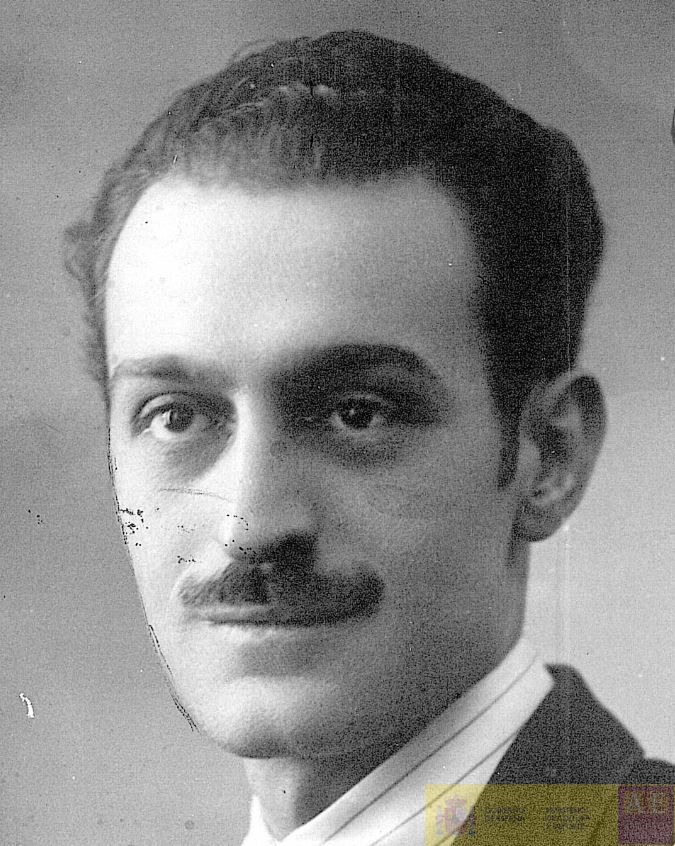 Persona - Forns, José (1898-1952)
Persona - Forns, José (1898-1952)
Identificación
Tipo:
Persona
Forma autorizada:
Forns, José (1898-1952)Otras formas
Fechas de existencia:
Madrid (España) 1898-01-12 - Ginebra (Suiza) 1952-09-06
Historia:
Compositor, historiador, pedagogo y crítico musical español.
Nació el 12 de enero de 1898 en Madrid (España). Hijo del pintor y catedrático Rafael Forns Romans y de Aurora Quadras; hermano del también pintor Rafael Forns Quadras.
Estudió solfeo, piano y armonía en el Conservatorio de Música de Madrid. Alumno de Francisco Fuster, Pedro Fontanilla y Emilio Serrano, aunque él se consideró discípulo de Conrado del Campo. En 1919 obtuvo el primer premio de Armonía en dicho Conservatorio, y ganó la cátedra de Estética e Historia de la Música en 1921. Consiguió el doctorado en Derecho por la Universidad Central de Madrid. Publicó "Historia de la música" (1925) y "Estética aplicada a la música" (1925). Esta última fue declarada "obra de mérito, por Real orden de 9 de agosto de 1929, previo informe de la Academia de San Fernando y del Consejo de Instrucción Pública". Colaboró entre 1916 y 1931 en el "Heraldo de Madrid" como crítico musical; también en "La Vanguardia" y otros diarios nacionales y extranjeros. Ejerció como responsable de la sección de cinematografía de la Sociedad General de Autores y Editores (SGAE). También fue miembro de la Sociedad de Autores Dramáticos y de la Sociedad de Autores Cinematográficos. Fue nombrado delegado perpetuo de España en el Consejo Permanente para la Cooperación Internacional de Compositores, y participó en la Comisión Internacional de Legislación de la Confederación de Sociedades de Autores. El 24 de abril de 1935, como delegado perpetuo en dicho Consejo Permanente, propuso incluir en el programa de Hamburgo la obra de Manuel de Falla "El sombrero de tres picos" (1917-1919), con motivo de la celebración de los Festivales Internacionales de Música; la Comisión alemana organizadora aceptó la petición el 24 de mayo de 1935.
Ingresó en la Real Academia de Bellas Artes de San Fernando, en la que leyó su discurso, el 9 de abril de 1945, titulado "El derecho de autor de los artistas". Publicó otros escritos musicales como "Una entidad artística que no debe desaparecer: la que fue banda de alabarderos" (1931), "El porvenir de la música española" (1931) o "La cinematografía en España. Al lado de un arte nacional, un sistema sonoro propio" (1941).
Entre su producción musical, para la escena, compuso zarzuelas, operetas, sainetes y revistas como "El toque de oración" (1917), "El amor de Friné" (1922), "La reina patosa" (1922), "El ingenio de papá" (1923), "El Tenorio de Romea" (1926), "Nely" (1927), "La flor del pazo" (1928), "Flores de lujo" (1931), "Tres gallinas para un gallo" (1934), pieza de gran éxito, en colaboración con Francisco Alonso y libreto de Antonio Paso, "Ahora verás" (1936) y "Mujeres a la medida" (1940). Escribió también para obras cinematográficas como "Diez días millonaria", "El rayo", "El niño de las monjas", "Flora y Mariana", "Madre Alegría", "Un caballero famoso" o "Isabel de Solís". Otros títulos para distintos géneros son "Noche verbenera" (1923) "Las bataclanas" (1932) o "Las peripatéticas" (1932). Falleció el 6 de septiembre de 1952 en Ginebra (Suiza).
Lugares
Lugar de Nacimiento:
Lugar de Defunción:
Conceptos/Objetos/Acontecimientos
Relaciones
Relaciones familiares :
Enlaces Externos
Fichero de Autoridades:
Directorio:
Catálogo de Autoridades:
Documentos
Productor de:
- No hay Unidades de Descripción asociadas.
Documentos relacionados:
- No hay Unidades de Descripción asociadas.






